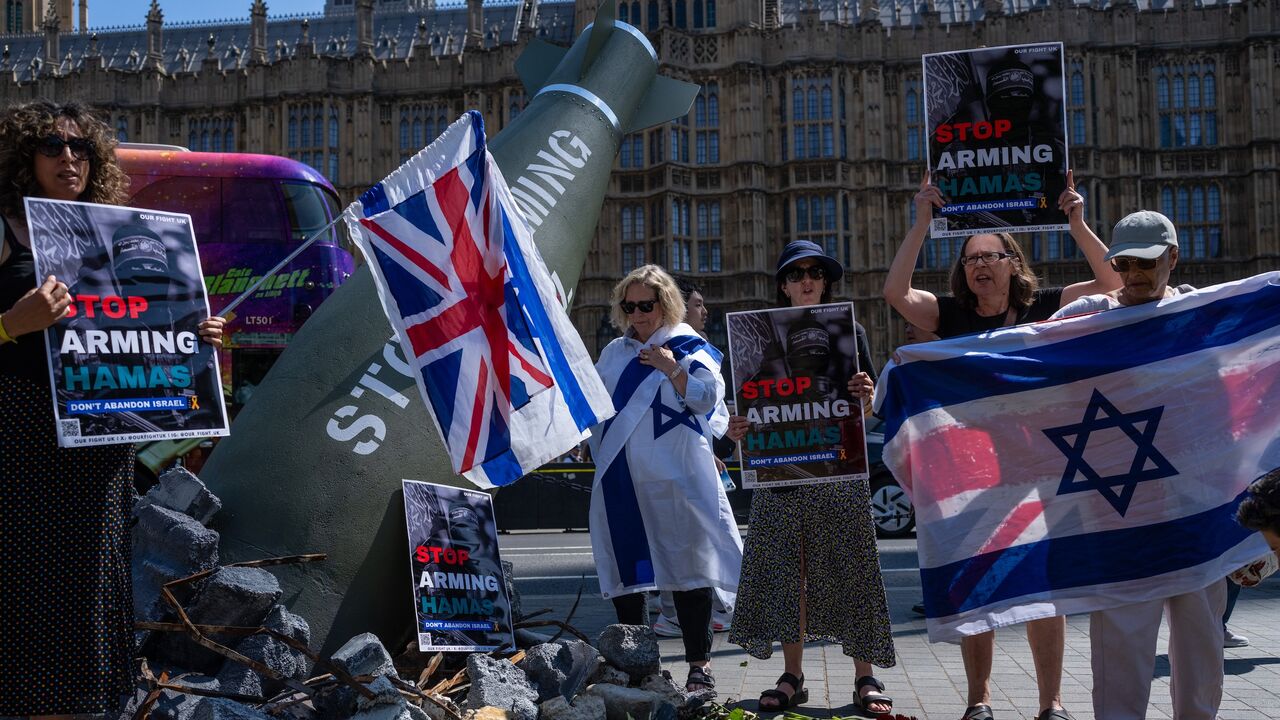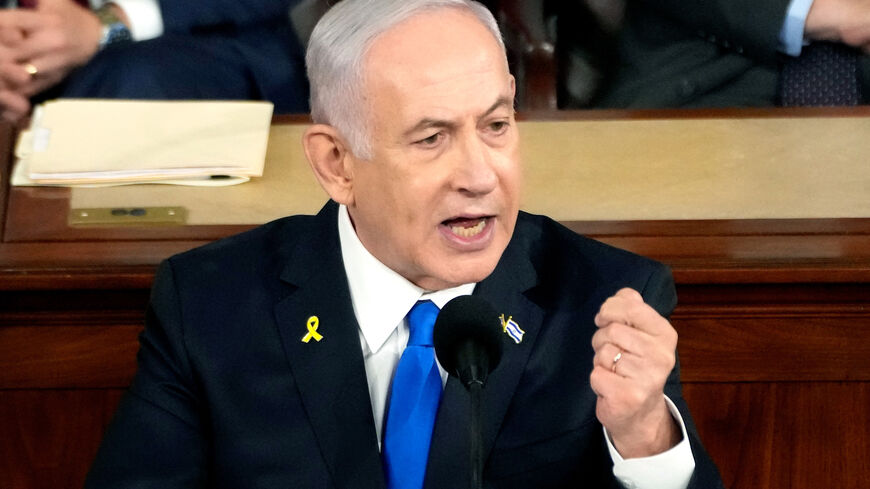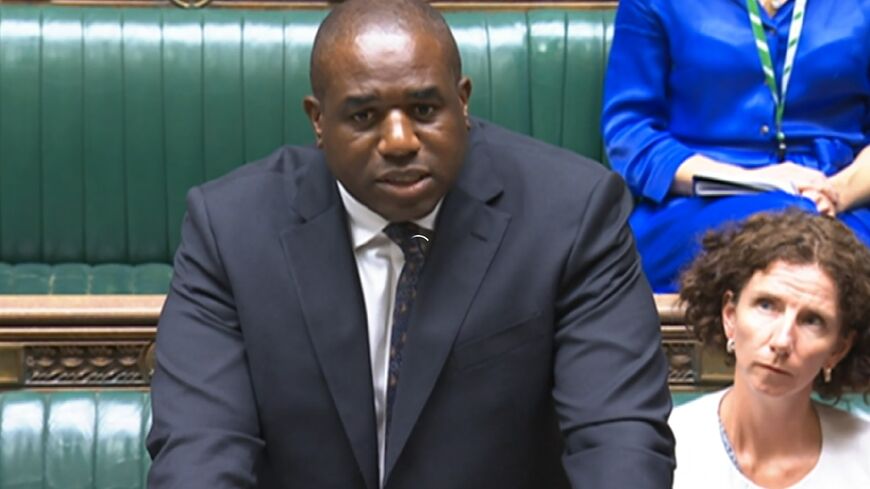UK halts 30 arms export licenses to Israel, citing Gaza concerns
After reviewing all the licenses issued or extended in recent months for arms exports to Israel, the British government decided to suspend 30 of them.

LONDON — The United Kingdom will suspend some weapons sales to Israel, British Foreign Secretary David Lammy said on Monday, over concerns that the weapons would be used to violate international law in the war in Gaza. He stressed that the decision does not mean a full arms embargo against the Jewish state.
Addressing members of parliament, Lammy said there was "a clear risk" that UK arms exports to Israel might be used to commit or facilitate "a serious violation of international humanitarian law."
The British Foreign Ministry further explained that the government will suspend 30 of the 350 arms export licenses to Israel, noting "this is not a blanket ban, this is not an arms embargo." The list of suspended items includes components that go into military aircraft, including fighter jets, helicopters and drones, as well as items that facilitate ground targeting, that would be used in Gaza.
In a statement, the Foreign Ministry said the suspension will not change the UK’s "steadfast support" for Israel’s security, and that the decision will be kept under review.
The ministry said there are several UK arms export licenses not for military use in the current conflict in Gaza, and those did not require suspension. These include items that are not being used by the Israeli military in the current conflict, such as trainer aircraft or other naval equipment, among other items. It also includes export licences covering a range of products such as food-testing chemicals, telecoms and data equipment.
UK components for the multinational F-35 joint strike fighter program were excluded from the suspensions, except when going directly to Israel. The ministry said that a decision on the F-35 fleet would have "serious implications for international peace and security."
Lammy added that the current left-wing Labor government had "rigorously followed every stage of the process which the previous Conservative government established," adding that it was a government decision and not one made by an international court.
"We have not and could not arbitrate on whether or not Israel has breached international humanitarian law," Lammy, a former lawyer, said.
‘’This is a forward-looking evaluation, not a determination of innocence or guilt, and it does not prejudge any future determinations by the competent courts," he added.
Lammy said that "throughout my life, I have been a friend of Israel." He also said that while Israel had a right to defend itself, he was not satisfied with the responses he received after raising concerns with the Israeli government on the use of weapons and the risk of violating human rights in Gaza.
"It is the assessment of His Majesty’s Government that Israel could recently do more to ensure life-saving food and medical supplies reach civilians in Gaza, in light of the appalling humanitarian situation," said Lammy.
Israeli Foreign Minister Israel Katz said in a statement that the UK’s decision to suspend some arms export licenses to Israel, "sends a very problematic message to the Hamas terrorist organization and its backers in Iran".
"Israel is disappointed by the British government’s recent series of decisions, including the latest decision regarding security exports to Israel, the British Government’s decision to withdraw its request to submit an amicus brief to the ICC, and its stance on UNRWA, as well as the UK’s recent conduct and statements in the UN Security Council," he said.
"We hope that the deep friendship between the UK and Israel, which has been maintained throughout all the years since the founding of the State of Israel, will continue in the future," Katz added.
Since the Oct. 7 Hamas attack on Israel, the current and previous British governments have been under pressure to halt arms exports to Israel. In December 2023 and April 2024, the British government decided not to suspend existing licenses or stop granting licenses for the export of arms to Israel, but it also decided that all arms export licenses would be kept under review.
According to data published by the British government last June, the number of arms export licenses issued or extended as of May 31 stood at 345.
In 2022, former British Business Minister Greg Hands said that the UK accounted for only around 0.02% of Israel's arms imports. However, between May 2015 and August 2022, the UK government licensed over 448 million euros ($589 million) worth of arms to Israel, including for aircraft, missiles and a number of other lethal military technologies.
On Monday, the UK government also announced sanctions against three individuals within the Islamic Revolutionary Guard Corps Quds Force and an IRGC unit for threatening stability in the Middle East.







